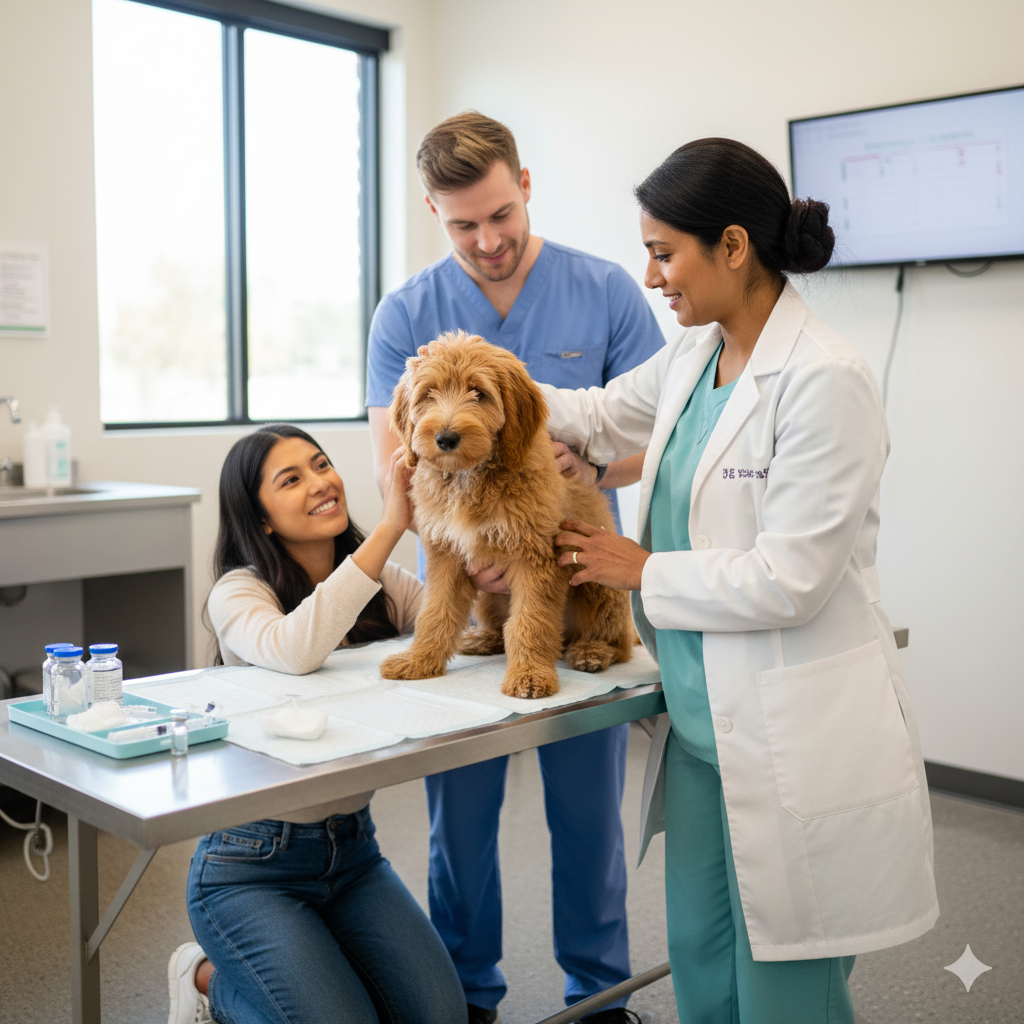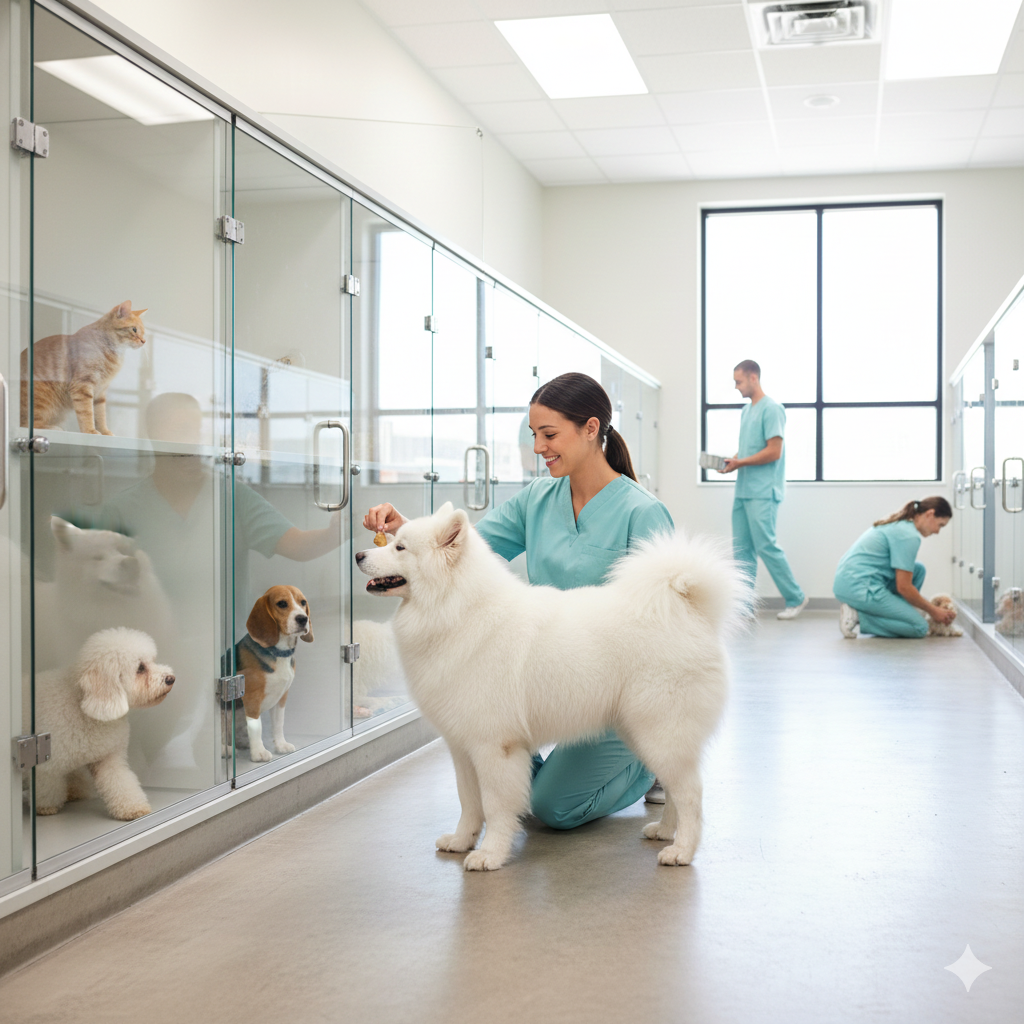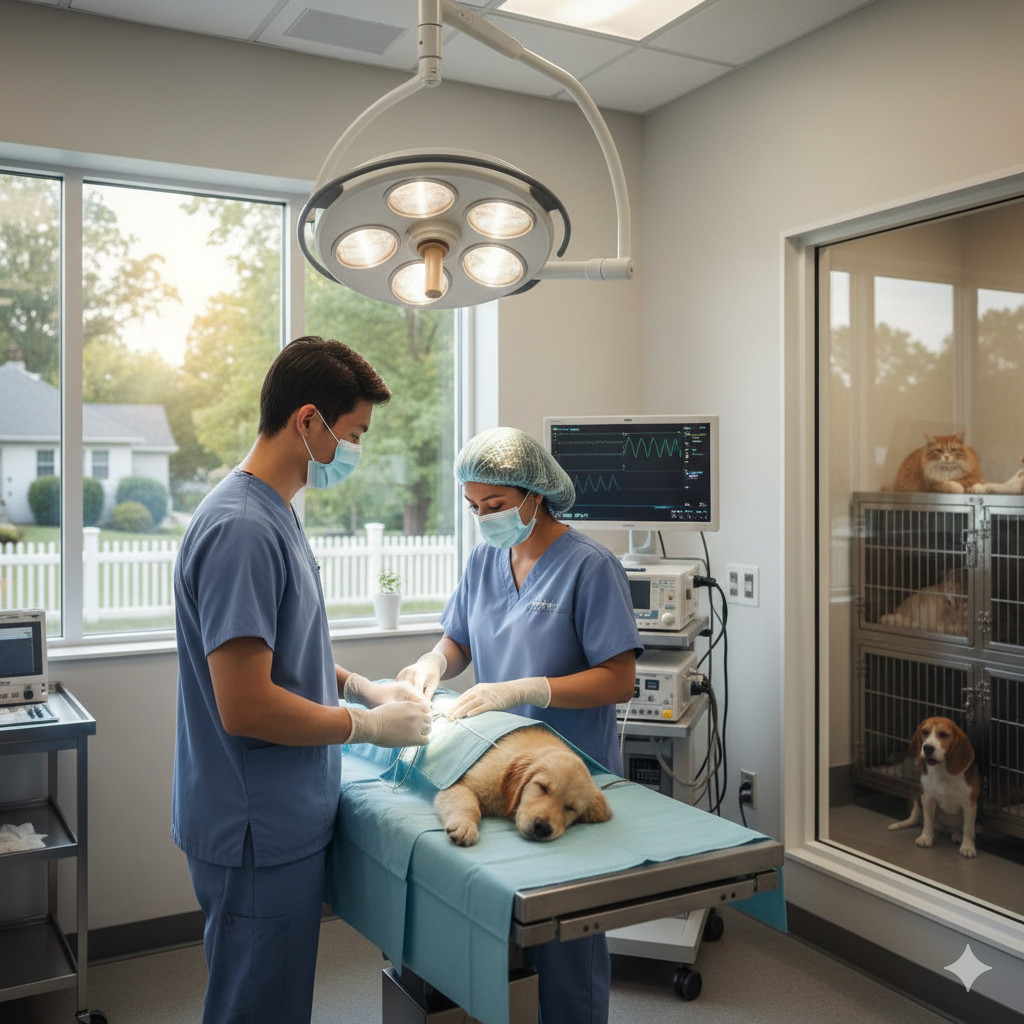How a Veterinarian Diagnoses and Treats Common Pet Health Issues
Caring for our pets is more than just providing food and shelter. It’s also about ensuring their health and well-being so they can live long, happy lives by our side. When pets get sick or start exhibiting unusual behavior, many pet owners feel helpless. That’s where the steady, skilled hands of a Veterinarian come in. Visiting the vet near me at the right time can make a world of difference in preventing small health problems from becoming major issues. At Country Creek Animal Hospital, the goal is always to combine compassion with medical expertise to give our pets the best care possible.
From diagnosis to treatment, the process of managing pet health issues involves science, experience, and a strong bond between the Veterinarian, the pet, and the pet owner. Understanding how this process works not only reassures pet owners but also encourages them to be proactive about their furry companion’s health.
The Role of a Veterinarian in Pet Health
When a pet falls ill or begins showing symptoms, the first point of contact is almost always the vet. A Veterinarian doesn’t just jump to a conclusion—they carefully piece together information like a detective. They listen to the pet owner’s observations, physically examine the animal, and often utilize diagnostic tools like lab tests or imaging.
A vet is not only trained in medicine but also in communication. Pets cannot speak, so much of the diagnosis depends on how well the Veterinarian interprets signals—body movements, symptoms, appetite changes, and even subtle shifts in energy levels. At places like Country Creek Animal Hospital, this combination of medical knowledge and empathy is what sets their care apart.
Common Health Issues Seen by Vets
Every pet will deal with some form of illness or discomfort during its lifetime. While many problems are minor, they should never be ignored. Regular visits to a Veterinarian help catch these issues before they escalate. Some of the most common concerns brought to a vet include:
- Skin conditions such as allergies or infections
- Ear problems like infections or mites
- Dental issues from plaque buildup or gum disease
- Digestive troubles including vomiting or diarrhea
- Parasites like fleas, ticks, or worms
- Mobility issues such as arthritis or hip dysplasia
- Chronic conditions like diabetes or kidney disease
A skilled Veterinarian has the experience to diagnose and treat these concerns quickly, but owners also play a vital role by bringing their pets in at the first sign of trouble.
Diagnostic Process: How a Vet Gets Answers
Initial Consultation
The first step in solving any pet health issue is gathering information. A pet owner may notice something off—maybe their cat isn’t eating or their dog is scratching excessively. The vet will ask detailed questions: How long has this been going on? What’s changed in the pet’s environment? Has there been any shift in diet? This dialogue between pet parent and Veterinarian helps narrow down possible causes.
Physical Examination
Next, the Veterinarian performs a hands-on exam. This can include checking the eyes, ears, mouth, fur, skin, and abdomen, as well as listening to the heart and lungs. The vet may palpate certain areas to test for pain or swelling. Often, the physical exam provides immediate clues.
Advanced Diagnostics
If the root cause isn’t obvious, lab tests or imaging may be necessary. A Veterinarian might order bloodwork, urine tests, stool samples, X-rays, or even ultrasounds. These methods help rule out or confirm more complex conditions.
Treating Pet Health Issues
Medication and Therapies
Treatment depends on diagnosis. In many cases, a vet may prescribe antibiotics for infections, anti-inflammatory drugs for pain, or antihistamines for allergies. Chronic cases may require ongoing treatments such as insulin injections or long-term medication.
Surgery and Procedures
Sometimes, more invasive steps are needed. A Veterinarian skilled in surgical techniques may perform procedures like removing a tumor, repairing a torn ligament, or spaying/neutering. At Country Creek Animal Hospital, these surgeries are done with careful monitoring to ensure pets remain safe and comfortable.
Lifestyle and Home Care
Not every solution comes from a prescription bottle. Often, a vet recommends changes in diet, exercise, grooming, or home adjustments to improve a pet’s quality of life. For conditions like arthritis, small lifestyle modifications—such as orthopedic bedding or controlled activity—can make a world of difference.
Preventive Care: The Best Medicine
Prevention is always better than cure, and a responsible Veterinarian emphasizes this at every visit. Through vaccinations, parasite prevention, and regular checkups, they help reduce the chances of serious health issues down the road. A vet will often recommend annual or biannual wellness exams depending on a pet’s age and health, ensuring that small problems don’t grow unnoticed.
Country Creek Animal Hospital strongly believes in preventive care as the foundation of long-lasting health. By working with a trusted Veterinarian, pet parents gain peace of mind knowing their furry companions are getting the protection they need.
Breaking Down Specific Health Issues And Treatments
1. Skin and Allergy Problems
Common signs include itching, redness, hair loss, or sores. A vet may run allergy tests, examine the skin under a microscope, or do a food trial to pinpoint the trigger. Treatments vary from topical medications to allergy shots or changes in diet. A Veterinarian will guide the owner step-by-step to identify what’s irritating the pet.
2. Ear Infections
These are particularly common in dogs with floppy ears, but cats can suffer them too. A Veterinarian will likely swab the ear and examine it under a microscope. Depending on the cause, a vet may prescribe antibiotic drops, antifungal treatment, or thorough cleanings.
3. Dental Health Issues
Dental disease is one of the most overlooked health concerns in pets. Bad breath, drooling, or difficulty chewing may signal a problem. A vet may recommend a professional cleaning under anesthesia followed by at-home dental care. A Veterinarian understands that untreated dental issues can affect not only the mouth but also the kidneys, liver, and heart.
4. Stomach Upsets and Digestive Issues
Vomiting, diarrhea, or loss of appetite can mean many different things. A vet may examine stool samples, run bloodwork, or even perform imaging tests. Once a diagnosis is clear, an Allen Veterinarian develops a treatment plan that may involve medication, fluids, or special diets.
5. Parasites
From fleas to intestinal worms, parasites can make pets miserable. A vet diagnoses these through physical exams and lab tests. Prevention is the best approach; therefore, many Veterinarians recommend monthly preventives that keep pets parasite-free.
6. Arthritis and Mobility Issues
Older pets often suffer from stiff joints. A Veterinarian might order X-rays to confirm arthritis. While it can’t be cured, a vet can manage symptoms with medications, physical therapy, and lifestyle changes to keep pets comfortable.
7. Chronic Conditions
Diseases like diabetes, thyroid issues, and kidney disease are life-changing but manageable with the right care. A Veterinarian will often create a long-term plan involving medication, diet, and regular monitoring. A caring vet ensures that pets still enjoy a high quality of life even while managing chronic illness.
The Human Side of Veterinary Care
Being a vet involves more than just medical expertise. A Veterinarian also provides emotional support to pet parents going through stressful times. The bond between an animal, its owner, and the vet is something built on trust, empathy, and guidance.
At Country Creek Animal Hospital, this balance of science and compassion is a core philosophy. A Veterinarian’s role goes beyond treatments—it’s about becoming a partner in a pet’s lifelong health journey.
FAQs About Pet Health and Veterinary Care
How often should I take my pet to the vet?
Most healthy adult pets should see a Veterinarian at least once a year for a wellness check. Puppies, kittens, and senior pets may need more frequent visits.
What are signs that I should seek immediate veterinary care?
If your pet is struggling to breathe, bleeding heavily, unable to move, or experiencing seizures, contact your vet right away. Any sudden, severe change in behavior is also a red flag.
Do pets really need dental cleanings?
Yes. Just like humans, pets can suffer from plaque buildup, gum disease, and infections. A Veterinarian will often recommend professional dental cleanings as a key part of long-term health.
Can I treat minor issues like fleas at home without visiting the vet?
While some over-the-counter treatments work, it’s best to consult your Veterinarian. A vet can prescribe preventive treatments that are safer and more effective.
My pet seems fine—why are regular vet visits necessary?
Pets hide pain well. A Veterinarian can detect early signs of illness during routine exams before they become serious. Preventive visits save both money and heartache in the long run.
How can I make a vet visit less stressful for my pet?
Bringing familiar items, using calming sprays, and gradual positive exposure to carriers or car rides can help. A Veterinarian may also suggest additional techniques depending on your pet’s specific needs.
Country Creek Animal Hospital
1258 W Exchange Pkwy, Allen, TX 75013, United States
(972) 649-6777










